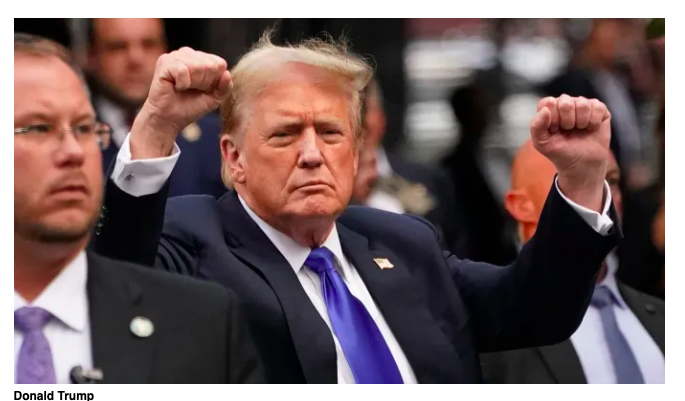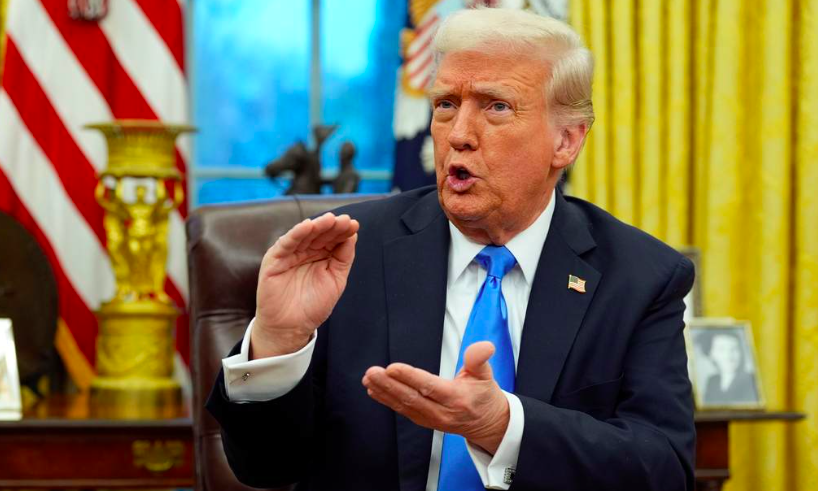Former President Donald Trump has managed to secure the endorsement and active support of three prominent figures who were once associated with the Democratic Party.
Robert F. Kennedy Jr., Elon Musk, and Tulsi Gabbard have all thrown their weight behind Trump’s 2024 campaign, forming a coalition of influential voices that could reshape the political landscape.
A Coalition of Unlikely Allies
Robert F. Kennedy Jr., a member of the famous Kennedy political dynasty, has long been a vocal critic of the Democratic Party’s current direction. Once a staunch environmentalist and vaccine safety advocate within the party, Kennedy has grown increasingly disillusioned with what he perceives as the Democratic establishment’s authoritarian tendencies.
“I attended my first Democratic Convention at the age of six in 1960,” Kennedy fondly recalled Friday of the era when his uncle John and father Robert Sr. ruled the Democratic establishment. “Back then, the Democrats were the champions of the constitution, and of civil rights. The Democrats stood against authoritarianism, against censorship, against colonialism, imperialism and unjust wars.”
His decision to support Trump, a figure he once opposed, reflects a broader trend of discontent among certain factions of the electorate. Kennedy’s alignment with Trump represents a significant ideological shift, one that underscores the former President’s ability to attract a diverse range of supporters from across the political spectrum.
Elon Musk, the billionaire entrepreneur and CEO of Tesla and SpaceX, has also emerged as a key supporter of Trump’s 2024 bid. Musk, who has often expressed libertarian-leaning views, has grown increasingly critical of the Democratic Party’s policies, particularly those related to regulation and taxation.
His endorsement of Trump signals a departure from the tech industry’s typical alignment with liberal causes. Musk’s influence, especially among younger voters and the tech-savvy demographic, could prove crucial in swaying independent and undecided voters in key swing states.
Tulsi Gabbard, a former Democratic congresswoman from Hawaii and a one-time presidential candidate, is the third member of this unlikely trio. Gabbard has been a vocal critic of the Democratic Party’s foreign policy and what she describes as its “warmongering” tendencies.
Her support for Trump, whom she once criticized during the 2016 election, highlights her break from the party’s mainstream and her alignment with Trump’s non-interventionist foreign policy stance. Gabbard’s endorsement adds credibility to Trump’s claim that his policies appeal to a broad and diverse coalition, transcending traditional party lines.
Strategic Implications for Trump’s Campaign
The endorsements of Kennedy, Musk, and Gabbard are not merely symbolic; they represent a strategic advantage for Trump as he prepares for the 2024 election. These figures bring with them substantial followings and the ability to reach voters who may be skeptical of traditional Republican candidates. The presence of former Democrats in Trump’s camp could help him make inroads with disillusioned voters from both major parties, offering an alternative to the perceived failures of the current administration.
Kennedy’s appeal to those concerned about personal freedoms, particularly in the context of vaccine mandates and government overreach, could bolster Trump’s standing among libertarian-leaning voters. Musk’s influence in the tech industry and his appeal to younger voters provide Trump with a unique opportunity to engage with a demographic that has traditionally been more resistant to his message.
Meanwhile, Gabbard’s anti-establishment rhetoric and foreign policy stances resonate with voters tired of endless wars and interventionist policies.
Just The News wrote:
Senior Trump aides and outside advisers have been buoyed by the the once-unimaginable possibilities that:
- Musk would lend his massive X social platform for an historic interview and fund a Super PAC to boost Trump;
- Gabbard would help prep the GOP nominee for his debate with Kamala Harris and make a case for women to return to the GOP; and
- Kennedy would lend his famous family name and political capital to lure defectors, especially the young and first-time voters who flocked to his independent campaign
“We now have a trio of Power Rangers who can swoop right into the middle of the rival party and convince traditional Democrats that it’s OK to leave a party that left them,” said one senior Trump adviser, who asked to remain unnamed.
A Conservative Realignment
The support from these ex-Democrats also signals a broader conservative realignment that has been brewing over the past few years. As the Democratic Party has moved further left, figures like Kennedy, Musk, and Gabbard have found themselves increasingly at odds with the party’s direction. Their support for Trump indicates a shift towards a more populist, anti-establishment conservatism that rejects the progressive agenda.
While some may view this coalition as an odd assemblage of personalities, it highlights Trump’s unique ability to bring together diverse voices under a common cause. As the 2024 election approaches, the former President’s campaign is likely to leverage these endorsements to broaden its appeal and challenge the prevailing political narratives.
The backing of RFK Jr., Musk, and Gabbard marks a significant development in the 2024 race, one that could have far-reaching implications for the future of American politics.

